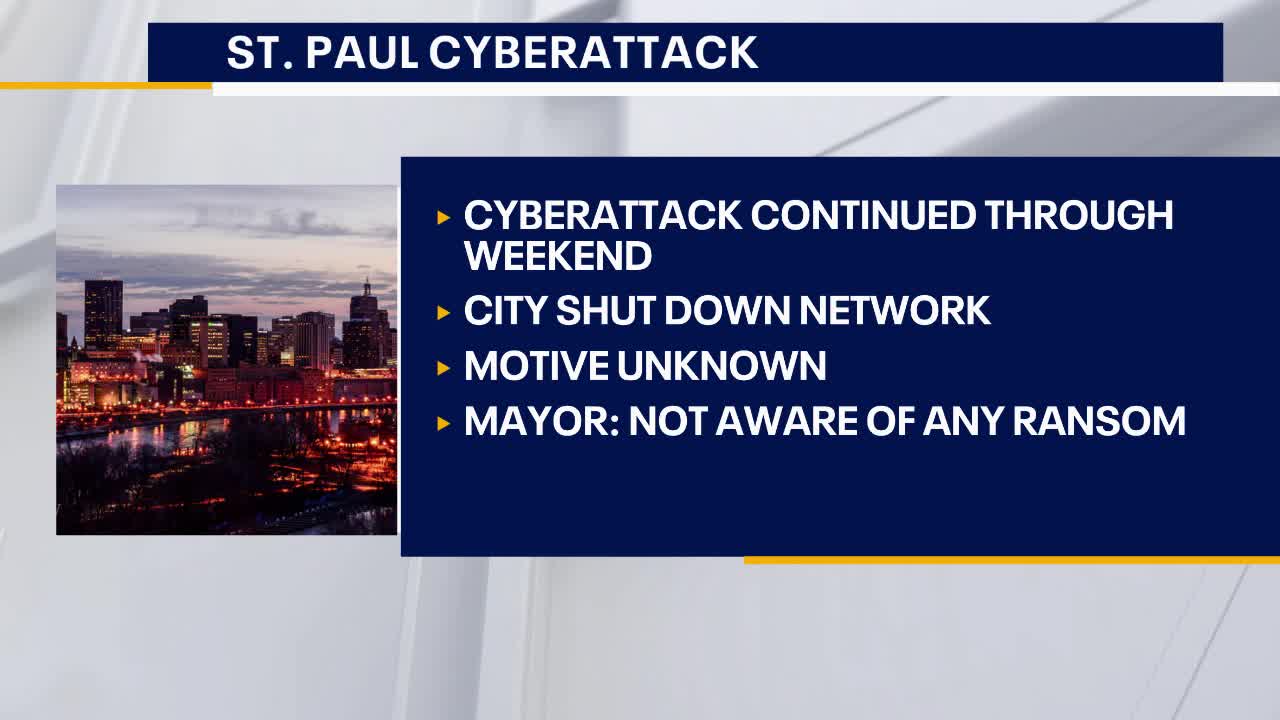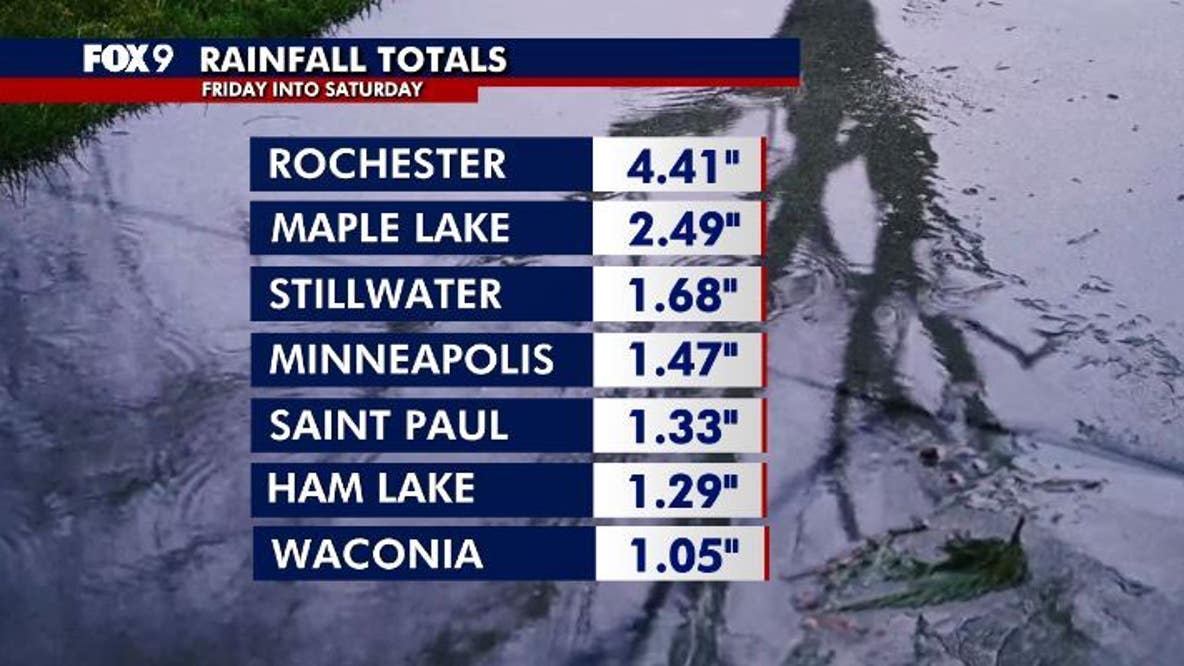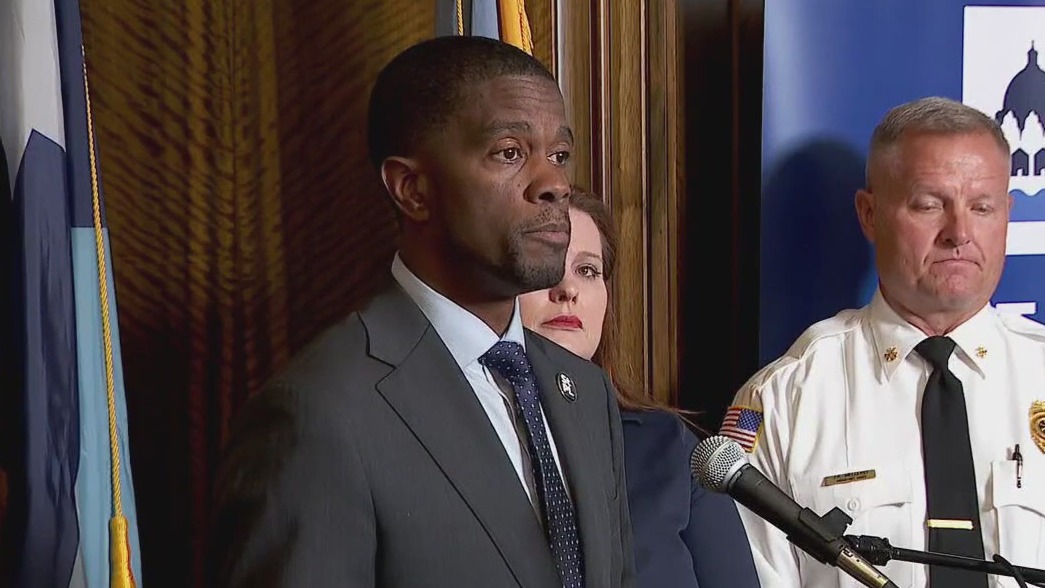Have you ever thought about how vulnerable our city infrastructures are to cyberattacks? The recent cyberattack on St. Paul has opened up a wide range of concerns about digital safety and security. Let’s unpack the details of this incident, the city’s response, and what it means for the future of cybersecurity.

This image is property of images.foxtv.com.
What Happened in St. Paul?
On a seemingly ordinary Friday morning, St. Paul’s cybersecurity systems detected unusual activity that warranted immediate action. This wasn’t just a minor system glitch or a technical error; it was a calculated attack from a sophisticated external actor aiming to compromise the city’s information infrastructure. Mayor Melvin Carter confirmed that by Saturday, a full-scale investigation was underway, with emergency protocols activated to manage the consequences of the breach.
The Response to the Cyberattack
Immediate Response
Upon confirming the cyberattack, the city took swift measures to mitigate potential damage. The wireless internet across all city buildings was shut down, and access to the city’s internal applications was severely restricted. Mayor Carter declared a state of emergency to facilitate a full assessment and response to the incident.
Activation of the Minnesota National Guard
Given the attack’s severity, the city sought help from the Minnesota National Guard. Governor Tim Walz promptly activated the National Guard’s cyber protection support unit. Their collaboration aims to restore the city’s cybersecurity systems rapidly while minimizing the attack’s lasting impacts on the community.

This image is property of c107833-mcdn.mp.lura.live.
Key Details from the Incident
What Was Affected?
During the investigation, it became evident that various city systems and services were impacted:
| Affected Services | Impact |
|---|---|
| Wireless Internet | Down across all city buildings |
| St. Paul Library | Collection management systems were disabled |
| Internal Applications | Network access restricted |
| Emergency Services | 911 operations remained intact |
These measures were taken to contain the threat and safeguard sensitive information from further compromise.
City Officials’ Statements
Mayor Carter emphasized that this cyberattack represented a significant crime against the city. He also confirmed that as of the latest updates, no ransom had been demanded, suggesting that the attackers’ motives may still be under investigation.
Jamie Wascalus, the Director for the Office of Technology and Communications, echoed the urgency of the crisis, asserting the need for the community to take digital security precautions in both personal and professional realms.
Understanding Cybersecurity Breaches
What Is a Cybersecurity Breach?
A cybersecurity breach occurs when an unauthorized party gains access to a system in order to steal, manipulate, or destroy data. The repercussions are far-reaching, impacting not only the targeted entity but also loyal citizens who rely on those services.
Why Are Urban Areas Vulnerable?
Urban areas like St. Paul often have complex, interconnected information systems that can be vulnerable to digital attacks. With multiple departments reliant on shared technology, a breach in one area can have cascading effects throughout the entire system. Cybercriminals exploit these vulnerabilities, aiming to disrupt municipal operations for various motivations—financial gain, political objectives, or simply as a means of social commentary.

This image is property of images.foxtv.com.
The Aftermath of the St. Paul Cyberattack
Ongoing Investigations
As the investigation continues, local, state, and federal officials—including the FBI—are collaborating to uncover the identity of the attackers and assess the extent of the data compromised. This collaborative effort is crucial to not only hold the attackers accountable but also to develop actionable strategies that can mitigate similar risks in the future.
Impact on Citizens
While public safety operations, including 911 services, remain unchanged, the incident serves as a critical reminder of the need to evaluate and enhance cybersecurity measures. The city is taking steps to keep citizens informed about the situation while urging individuals to maintain vigilance regarding their digital security.
Encouraging Community Engagement
As St. Paul’s officials continue their response, they invite community members to stay informed and understand the steps being taken to protect their information. Encouragement for residents to engage proactively with their cybersecurity practices is now more important than ever.
Moving Forward: Enhancing Cybersecurity Measures
Recommendations for Individuals
In light of the recent events, it’s imperative that everyone take proactive steps to enhance personal cybersecurity. Here are some recommendations you might find helpful:
| Action | Description |
|---|---|
| Use Strong Passwords | Always opt for complex, unique passwords. |
| Enable Two-Factor Authentication | Additional security can prevent unauthorized access. |
| Keep Software Updated | Regularly update your operating systems and applications to patch vulnerabilities. |
| Be Cautious with Public Wi-Fi | Avoid accessing sensitive information on unsecured networks. |
| Review Privacy Settings | Regularly check and adjust privacy settings on devices and accounts. |
Taking these actions can significantly reduce individual risk and contribute to the overall security of the community.
Enhancing Municipal Systems
It’s essential for municipal systems to undergo regular security assessments and updates. St. Paul and similar cities should prioritize both investment in advanced cybersecurity technologies and employee training on best practices for recognizing phishing and other digital threats.
Community Workshops
Hosting workshops and seminars aimed at educating citizens about cybersecurity can also strengthen the community’s resilience against future breaches. These events can offer practical guidance and encourage a culture of security awareness.

This image is property of c107833-mcdn.mp.lura.live.
The Bigger Picture
National Security Implications
The implications of cyberattacks extend beyond local concerns; they intersect with national security. When cities become targets, it raises alarms about the vulnerabilities within essential services and their connection to broader infrastructure systems. Continuous dialogues about cybersecurity, investment in protective technologies, and partnerships at local and federal levels are crucial for long-term resilience.
Global Trends in Cybercrime
Cybercrime is pervasive and evolving. As technology advances, so do the methods employed by attackers. Awareness of global trends in cyber threats is vital for cities like St. Paul, enabling officials to fortify defenses against emerging vulnerabilities.
Conclusion: Learning from the St. Paul Cyberattack
This significant cyberattack on St. Paul serves as a crucial learning opportunity for cities everywhere. Understanding the mechanics of such incidents, the responses required, and the preventative measures that can be put in place is essential. As municipal systems grow increasingly intertwined with digital networks, the importance of robust cybersecurity has never been more pronounced.
By fostering partnership and education among community members, city officials, and cybersecurity experts, you can help build a safer environment for everyone. Remember, cybersecurity is a shared responsibility, and together, you can work to protect the future of your city’s information infrastructure.

This image is property of images.foxtv.com.